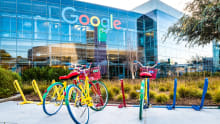Anand Mahindra - Safekeeper of ethics

In today's world, there is trust deficit in many walks of life. Fortunately, trust isn't a commodity that can be bought
People are the foundation stone of an ethical organisation
Anand Mahindra, Chairman and Managing Director of Mahindra & Mahindra, talks about what it takes to build an ethical organisation
In today's world, there is a trust deficit in many walks of life. With greed seemingly all pervasive, people are yearning for icons they can trust - be it individuals, companies or brands. Fortunately, trust isn't a commodity that that can be bought. It is an asset that must be earned, usually through a proven track record across many generations.
While working on the idea of whistle-blowing and corporate ethics, we wondered what went behind building great organisations. A lot has been written about it, but we wanted to know from someone who had built one. And who else but someone who decided to take good governance to the next level by starting a firm that helps organisations reduce risk and enhance competitive advantage. We are talking about the Mahindra Special Services Group (MSSG) and the man behind it – Anand Mahindra, the Chairman and Managing Director of Mahindra & Mahindra, an organisation that is as old as the nation is and the one that has been scaling new heights since its inception.
When asked about the foundation stones to build an ethical organisaton, he said, “The foundation stones for building an ethical organisation are undoubtedly its people, especially its senior leaders that the entire organisation looks up to. Ethics is a function of culture and the culture itself. At the end of the day, it is about the people - the type of people you attract and recruit, the type of people you promote and the ones who lead the businesses. While having the right set of policies in place is crucial, actions, as the saying goes, speak louder than words. Policies alone cannot ensure compliance, but it is the company's reaction to non-compliance that is a true test of its commitment to corporate ethics.
If ethics are a function of the people and the culture and the Mahindra Group takes care to hire and promote the right kind of people, this should mean that there is no wrongdoing in the Mahindra group whatsoever. To this he replies, “I cannot assure you that there is no wrongdoing happening in some part of the Mahindra Group. However, I am confident that if any wrongdoing is brought to the attention of the Mahindra management - be it with regards to vendors, employees, customers or any other stakeholders, it will be investigated and if found guilty, strict action taken against the errant individuals.”
In the ever increasing competitive market, people and companies with long-term focus fear being left behind and ethics, although beneficial to the business, yields profits only in the long term. In the current scenario, where business suffers acute myopia and does not look beyond the next quarter, is it logical for businesses to focus on the long term? Answering in the affirmative, he says, “In today's world, there is a trust deficit in many walks of life. With greed seemingly all pervasive, people are yearning for icons they can trust - be it individuals, companies or brands. Fortunately, trust isn't a commodity that that can be bought. It is an asset that must be earned, usually through a proven track record across many generations. Companies and brands that have overcome the 'trust barrier' of consumer confidence are then able to charge a premium for their products and services. Ethical business practices in dealing with all stakeholders are a cornerstone of this long trust-building exercise and the ability to reap a ‘brand premium’ is the reward for those who are patient.”
When we asked him about the Mahindra Special Services Group (MSSG), he cited an interesting story about how the origin of MSSG is in another Mahindra product – the Mahindra Scorpio. “After the success of the Scorpio, the automotive business realised that in the process of conceptualising and designing the Scorpio, it was in the possession of very sensitive design and engineering data that needed to be protected. While we had a robust risk management framework in place, we realised that we needed to go beyond just ‘complying with the standards’ to protect our intellectual property rights. We needed a team that could evaluate the efficiency of controls comprising of people, process and technology, even attempting to compromise these controls if necessary, rather than the depending purely on compliance. MSSG was thus set up with the charter to evaluate our processes from an attacker’s perspective and implement the mitigation strategy to maintain our brand and competitive advantage going forward.
Great organisations like Rome are not built in a day. It takes continued commitment from the leadership. “I think of myself and all my Mahindra colleagues are custodians of the Mahindra culture that has been built by our predecessors over the past several decades. We are all safe-keepers of the reputation for strong ethics and corporate governance that they have built and I feel it is too precious an asset to be pawned for short term financial gains.”










